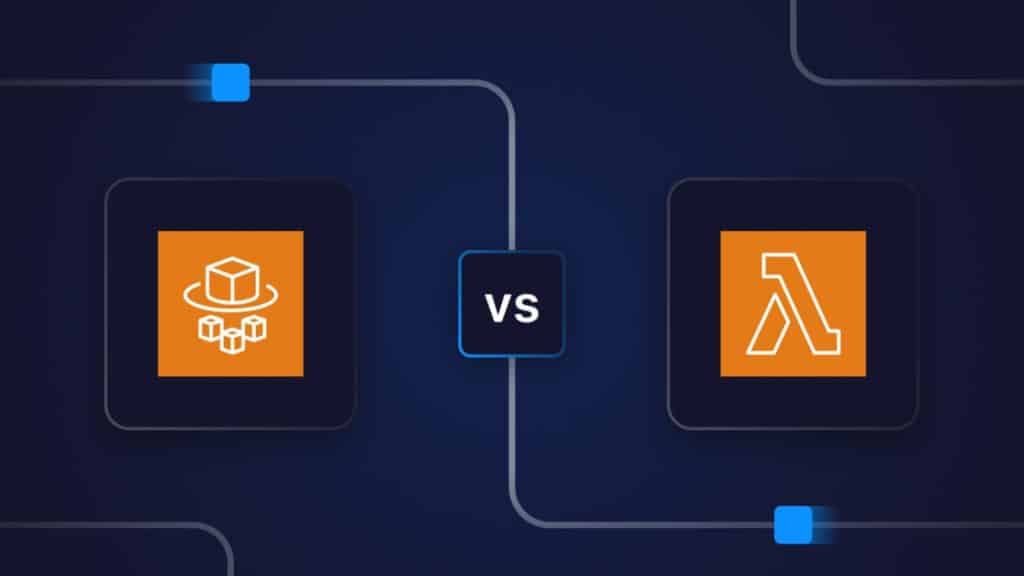Companies are constantly under pressure to handle complicated IT systems while innovating, adapting, and controlling expenses. Though it might be difficult to integrate on-premises systems with the cloud, hybrid cloud techniques have evolved as a solution. Serverless solutions are provided by AWS Fargate or Lambda for Hybrid Cloud Strategies to streamline processes and boost productivity.
Even though 80% of businesses use hybrid cloud models, many still have problems with cost control, scalability, and integration. This article examines how AWS Fargate or Lambda solves these issues, improving the usefulness and efficiency of hybrid cloud architectures.
The Rise of Hybrid Cloud Strategies
Hybrid cloud methods combine the benefits of public and private settings, providing the protection and control of private infrastructure with the scalability and agility of the public cloud. According to Gartner, by 2025, more than 90% of businesses are anticipated to use a hybrid cloud approach to meet their goals for digital transformation.
Several key factors drive this shift:
- Operational Flexibility: Enabling businesses to run workloads in the most suitable environment, whether on-premises or in the cloud.
- Cost Efficiency: Maximizing infrastructure savings by utilizing cloud elasticity.
- Enhanced Security and Compliance: Allowing sensitive data to remain on-premises while using the cloud for non-critical workloads.
AWS Fargate: The Workhorse for Containerized Workload
What is AWS Fargate?
AWS Fargate is a serverless compute engine designed for containers. It eliminates the need to provision and manage servers, enabling developers to focus solely on their applications. By abstracting the infrastructure layer, Fargate simplifies running containers in both Amazon Elastic Container Service (ECS) and Amazon Elastic Kubernetes Service (EKS).
How AWS Fargate Fits into Hybrid Cloud Strategies
In a hybrid cloud setup, Fargate plays a critical role in:
- Seamless Deployment: Organizations can deploy containerized applications across on-premises and cloud environments with ease.
- Cost Optimization: With pay-as-you-go pricing, Fargate eliminates the overhead of maintaining idle servers, ensuring cost-efficient operations.
- Scalability: Fargate automatically scales resources based on application demands, making it ideal for unpredictable workloads.
Example of Use Case:
Consider a retail company with seasonal traffic spikes. During peak shopping seasons, they rely on AWS Fargate to scale their containerized e-commerce application seamlessly across hybrid environments, ensuring a smooth shopping experience for customers worldwide.
AWS Lambda: Powering Event-Driven Architectures
What is AWS Lambda?
AWS Lambda is a serverless computing service that runs code in response to events and automatically manages the underlying infrastructure. Developers upload their code, define triggers, and AWS Lambda handles the rest—scaling resources as needed.
Why AWS Lambda is Ideal for Hybrid Cloud Strategies
AWS Lambda’s event-driven nature makes it a perfect fit for hybrid cloud scenarios, where diverse applications and systems must communicate efficiently. Key benefits include:
- Low-Latency Processing: Ideal for handling event-driven tasks like real-time data processing and API requests.
- Interoperability: Lambda integrates seamlessly with various AWS and on-premises services.
- Reduced Maintenance: With no servers to manage, teams can focus on delivering features rather than maintaining infrastructure.
Example of Use Case:
Imagine a healthcare provider using AWS Lambda to process patient data from IoT devices deployed in hospitals. The hybrid setup ensures sensitive data stays on-premises while leveraging Lambda’s processing power for real-time analytics in the cloud.
Comparing AWS Fargate and Lambda for Hybrid Cloud
The battle between AWS Fargate vs Lambda, will be a tough one; choosing one will require a great amount of brainstorming. Let’s do it together:
AWS Fargate or Lambda for Hybrid cloud :
| Feature | AWS Fargate | AWS Lambda |
| Primary Use Case | Running containerized applications | Executing event-driven functions |
| Infrastructure | Fully managed container orchestration | Serverless function execution |
| Scalability | Scales with container workload demands | Scales based on event triggers |
| Cost Model | Pay per resource usage | Pay per execution |
| Ideal Workloads | Long-running processes | Short-lived, event-driven tasks |
Key Considerations for Implementing Fargate and Lambda in Hybrid Clouds
- Workload Assessment: Determine whether workloads are containerized or event-driven to choose between Fargate and Lambda.
- Latency Requirements: Use Lambda for low-latency, real-time processing and Fargate for workloads requiring sustained compute power.
- Integration with On-Premises Systems: Fargate and Lambda support hybrid integrations via AWS services like AWS Direct Connect and AWS Outposts.
- Cost Management: To avoid unexpected expenses, monitor and optimize resource usage with AWS Cost Explorer.
Expert Insights
Hybrid cloud adoption demands thoughtful planning and execution. Michael Stoecker, an AWS Solutions Architect, states, “The real power of AWS services like Fargate and Lambda lies in their ability to integrate seamlessly with diverse workloads, enabling organizations to innovate without infrastructure constraints.”
His advice? Start small with hybrid workloads and gradually scale based on organizational needs and application maturity.
The Future of Hybrid Cloud with AWS Fargate Or Lambda
The hybrid cloud landscape is evolving quickly, with AWS leading the charge through its innovative solutions. AWS Fargate and Lambda play a crucial role in helping organizations achieve higher efficiency, scalability, and innovation levels. As more businesses adopt hybrid cloud strategies, these services will continue to be essential for ensuring smooth integration and operational excellence.
Hybrid cloud strategies are essential for maintaining a competitive edge, but effective management requires the right tools. AWS Fargate and Lambda for Hybrid Cloud Strategies offer robust solutions to streamline workload management, improve scalability, and minimize operational complexity. Leverage AWS Consulting Services for better exposure toward the right and suitable approach.
